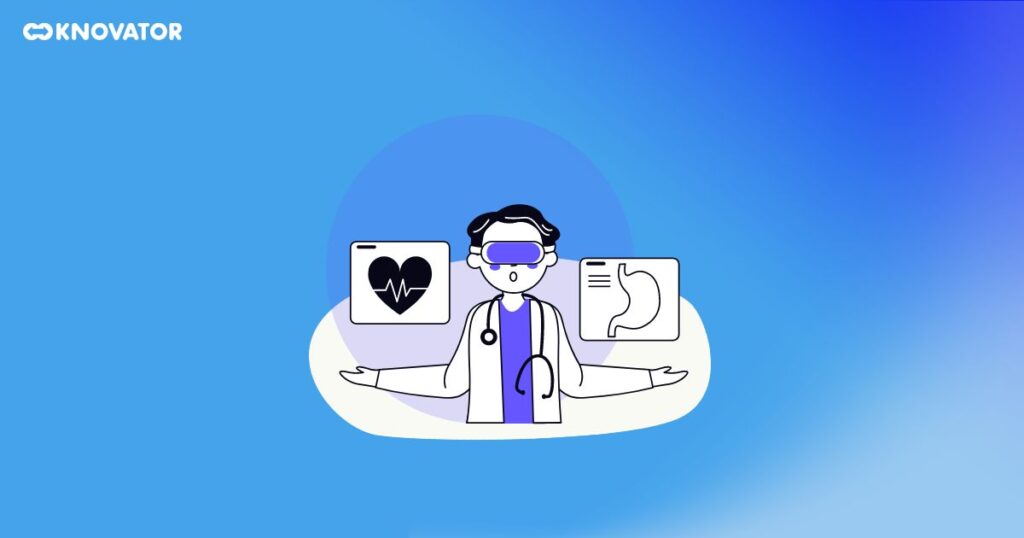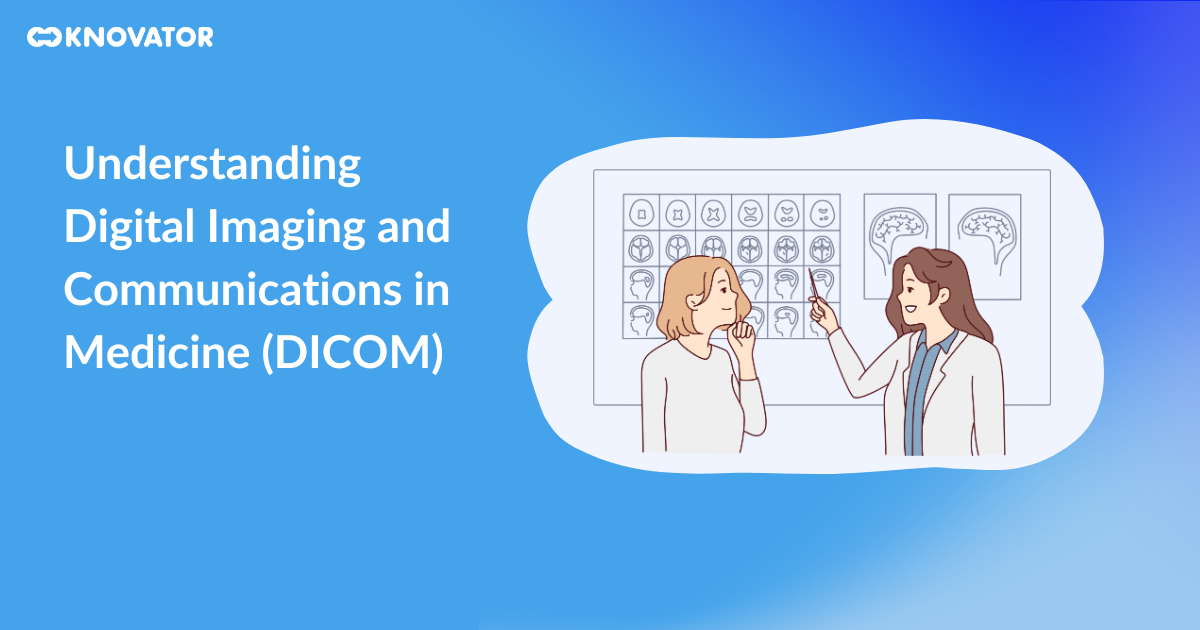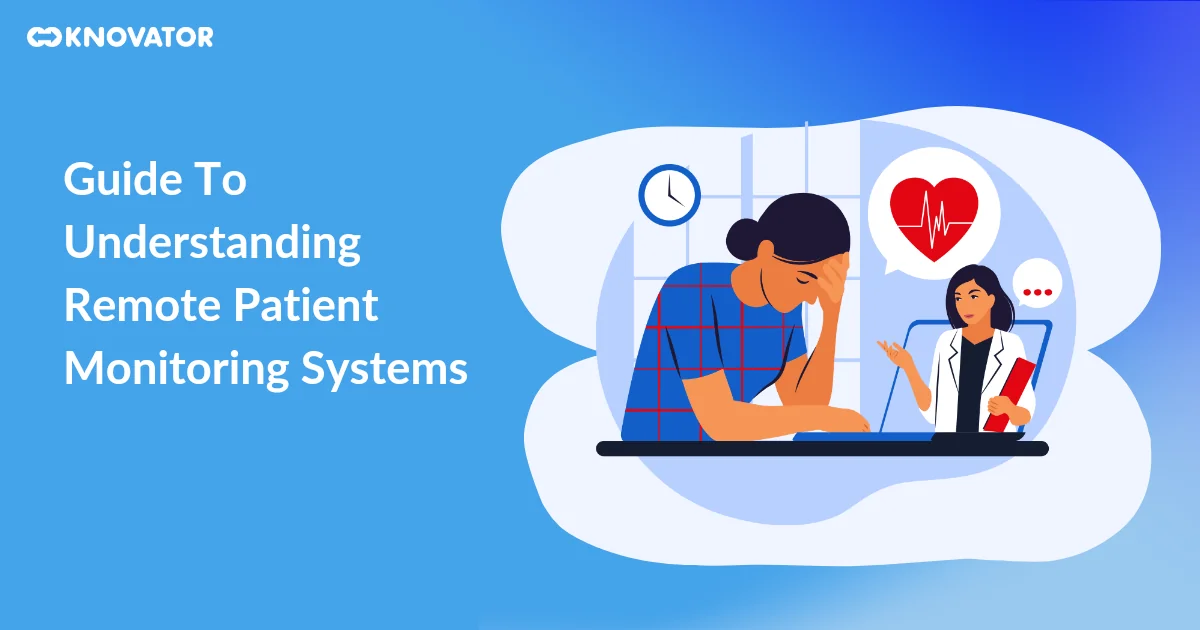In the brave new world of digital realities, there’s one term that’s increasingly making waves – the metaverse. But did you know that the metaverse isn’t just for gamers and tech enthusiasts? The healthcare sector is also tapping into its power, and the results are transformative.
The metaverse in healthcare promises to revolutionize patient care, medical training, and even surgery. With an industry value expected to exceed $800 billion by 2024, the metaverse isn’t just a sci-fi concept – it’s the future of healthcare.
In this blog post, we’ll explore the potential use cases of the metaverse in healthcare, as well as the benefits and challenges that this technology presents. We will also discuss the possible impact of the metaverse on the future of healthcare.
So let’s get started.
What is the Metaverse?
Let’s get our toes wet before we dive into the deep end. The metaverse is a virtual reality space wherein a user interacts with an environment generated by a computer and other users.
In the metaverse, users can actively interact with other users and with digital content in a more realistic and immersive way than is currently possible on the internet.
Some technologies being used to develop the metaverse include VR headsets, AR glasses, blockchain, and cryptocurrencies. These technologies are still evolving but can potentially create a truly immersive and interactive virtual world.
How Will the Metaverse Reinvent Healthcare?
 Wondering how the metaverse will revolutionize healthcare? The metaverse has the potential to reinvent healthcare in several ways. It can be used to improve access to care, provide more immersive and interactive training experiences, and even create new ways to diagnose and treat diseases.
Wondering how the metaverse will revolutionize healthcare? The metaverse has the potential to reinvent healthcare in several ways. It can be used to improve access to care, provide more immersive and interactive training experiences, and even create new ways to diagnose and treat diseases.
For example, the metaverse in healthcare could be used to create virtual hospitals that would enable patients to receive care from any part of the world. This would be especially beneficial for people who live in rural areas or have traveling difficulties.
Moreover, the metaverse can potentially improve medical training by providing more engaging and interactive experiences for students and professionals. This would allow them to practice procedures in a safe and realistic environment.
Top Metaverse Healthcare Use Cases
The metaverse is becoming a new frontier for healthcare. The metaverse can transform healthcare in numerous ways with its immersive and interactive capabilities.
Some of the most promising metaverse healthcare use cases include:
1. Metaverse Surgery
 One potential use for a metaverse in healthcare is metaverse surgery. With the help of VR tools, surgeons can now perform intricate procedures in a risk-free, virtual environment before the surgery. It’s like a rehearsal, reducing error rates and improving surgical outcomes. It’s a win-win situation for both the medical professionals and the patients.
One potential use for a metaverse in healthcare is metaverse surgery. With the help of VR tools, surgeons can now perform intricate procedures in a risk-free, virtual environment before the surgery. It’s like a rehearsal, reducing error rates and improving surgical outcomes. It’s a win-win situation for both the medical professionals and the patients.
Metaverse surgery has several benefits, including:
- Reduced error rates
By practicing in a virtual environment, surgeons can lower the risk of making mistakes during the actual surgery.
- Improved surgical outcomes
Metaverse surgery can improve surgical outcomes by allowing surgeons to practice more complex procedures and develop new surgical techniques.
- Better patient outcomes
Metaverse surgery can also lead to better patient outcomes by decreasing the risk of complications and by speeding up the recovery process.
2. Metaverse Therapy
 Teletherapy has become popular during the pandemic as it allows patients and therapists to connect through video conference platforms.
Teletherapy has become popular during the pandemic as it allows patients and therapists to connect through video conference platforms.
Metaverse therapy is a new and innovative way to deliver mental health care. It uses virtual reality (VR) technology to create a lifelike, immersive environment where patients can interact with their therapists. This can be especially valuable for people who are struggling with stress or depression, as it can provide a safe and comfortable space for them to open up and talk about their feelings.
A crucial application of the metaverse in healthcare is using VR technology to provide exposure therapy and addiction treatment. By recreating real-life situations in a controlled environment, professionals can assist patients in overcoming their struggles and preparing them to face similar situations in their daily lives.
3. Virtual Hospitals
 Virtual hospitals in the metaverse could redefine the idea of ‘visiting’ a hospital. In a virtual hospital, everything from consultations to recovery follow-ups could be managed digitally, minimizing the hassles of physical appointments.
Virtual hospitals in the metaverse could redefine the idea of ‘visiting’ a hospital. In a virtual hospital, everything from consultations to recovery follow-ups could be managed digitally, minimizing the hassles of physical appointments.
Patients could access virtual hospitals from anywhere in the world using their own devices. They could interact with doctors and other healthcare providers in real-time, using virtual reality (VR) or augmented reality (AR) technology.
This would allow patients to receive the care they need, regardless of their location or ability to travel. In addition, it would also make it easier for patients to connect with healthcare providers and reduce healthcare costs.
Of course, virtual hospitals are still in their early stages of development. However, the potential benefits of this technology are clear. Virtual hospitals could make healthcare more accessible, affordable, and convenient for patients.
4. Variety of Digital Twins
 Another use case of metaverse and healthcare is digital twins. The concept of “digital twins” in the metaverse brings a personalized touch to healthcare. These digital replicas of patients can help doctors understand unique health needs and tailor treatment plans accordingly. It’s like having a health blueprint, improving diagnosis and treatment accuracy.
Another use case of metaverse and healthcare is digital twins. The concept of “digital twins” in the metaverse brings a personalized touch to healthcare. These digital replicas of patients can help doctors understand unique health needs and tailor treatment plans accordingly. It’s like having a health blueprint, improving diagnosis and treatment accuracy.
Many different types of digital twins can be used in the healthcare metaverse. Some examples include:
- Digital twins of patients’ bodies
These digital twins can simulate surgeries and treatments before they are performed in the real world. This can help doctors to identify and address potential risks, and it can also help them to improve their skills.
- Digital twins of medical devices
These digital twins monitor the performance of medical devices and identify potential problems before they cause harm to patients.
- Digital twins of healthcare facilities
These digital twins optimize the layout of hospitals and clinics and improve the flow of patients and staff.
5. The Gamification Of Healthcare
 In the metaverse, healthcare can be fun too! The gamification of healthcare can improve patient engagement, compliance with treatment plans, and overall health outcomes.
In the metaverse, healthcare can be fun too! The gamification of healthcare can improve patient engagement, compliance with treatment plans, and overall health outcomes.
The gamification of healthcare is using game-like elements and mechanics to improve patient engagement and outcomes. This can be done by using rewards, challenges, and other incentives to motivate patients to care for their health.
For example, a patient could be rewarded with points for completing a fitness challenge or for taking medication on time. These points could then be redeemed for prizes, such as virtual badges or discounts on healthy foods.
6. In-depth Medical Education
 The medical metaverse can transform education in multiple ways. One of the most promising applications is in the area of in-depth medical education. With VR, students can learn about complex medical procedures in an immersive, hands-on way. This contrasts with traditional medical education, which often relies on lectures, textbooks, and simulations.
The medical metaverse can transform education in multiple ways. One of the most promising applications is in the area of in-depth medical education. With VR, students can learn about complex medical procedures in an immersive, hands-on way. This contrasts with traditional medical education, which often relies on lectures, textbooks, and simulations.
VR can provide students with a much more realistic and interactive learning experience. For example, students can use VR to practice surgical procedures on virtual patients. This can help them to develop the skills and confidence they need to perform these procedures in real life.
In addition to VR, the metaverse can also be used to create virtual patient communities. These communities allow students to connect and share their experiences. This can provide students with support, information, and a sense of community.
Challenges Of The Metaverse Adoption In Healthcare
 There’s no denying that the metaverse holds enormous promise for the healthcare industry. However, like any new technology, it also poses some unique challenges that need addressing before becoming a part of the healthcare system.
There’s no denying that the metaverse holds enormous promise for the healthcare industry. However, like any new technology, it also poses some unique challenges that need addressing before becoming a part of the healthcare system.
Here are some of the challenges of the metaverse adoption in healthcare:
- Cost
The metaverse is still a relatively new technology, and the cost of hardware and software can be prohibitive for some healthcare organizations.
- Interoperability
There is no single metaverse standard yet, which means that different metaverse platforms may not be compatible. This could make it difficult to share data and collaborate across various organizations.
- Privacy and security
The metaverse is a virtual world, raising concerns about privacy and security. Healthcare data is susceptible, and protecting it from unauthorized access is essential.
- Acceptance
The metaverse in healthcare is still a new concept, and it is still being determined how widely healthcare providers and patients will accept it. There may be some resistance to adopting new technologies, especially if they are considered too expensive or complex.
The Future of Metaverse In Healthcare
 The future of the metaverse in healthcare looks promising. The possibilities are endless, from delivering improved patient care to making medical education more engaging. However, it’s an ongoing journey, and we’re just at the starting line, eager to explore this digital world.
The future of the metaverse in healthcare looks promising. The possibilities are endless, from delivering improved patient care to making medical education more engaging. However, it’s an ongoing journey, and we’re just at the starting line, eager to explore this digital world.
The concept of metaverse can bring about a significant transformation in the healthcare industry by enhancing accessibility, efficiency, and personalization. In the metaverse, patients can access virtual doctors and hospitals from anywhere in the world and receive treatment from the best experts, regardless of their location.
However, as you read above, some challenges must be addressed before the metaverse can be fully adopted in healthcare. One challenge is data privacy. In the metaverse, patients’ medical data will be stored in a digital format, which could make it vulnerable to cyberattacks. Another challenge is cost. The metaverse is still in its early stages of development, and it is not yet clear how much it will cost to implement and maintain metaverse healthcare solutions.
Despite these challenges, the benefits of metaverse healthcare are significant. If the metaverse is used effectively, it could help improve the quality of healthcare for people worldwide.
Metaverse Healthcare: A New Era of Medicine
As we reach the end of our metaverse journey, it’s clear that the future of healthcare lies in this digital realm. The potential of the metaverse in healthcare is enormous, and while challenges remain, the opportunities far outweigh them. In the future, we can anticipate the rise of digital hospitals, metaverse surgeries, and interactive therapy sessions. These advancements will all contribute to creating a healthier and happier world.










